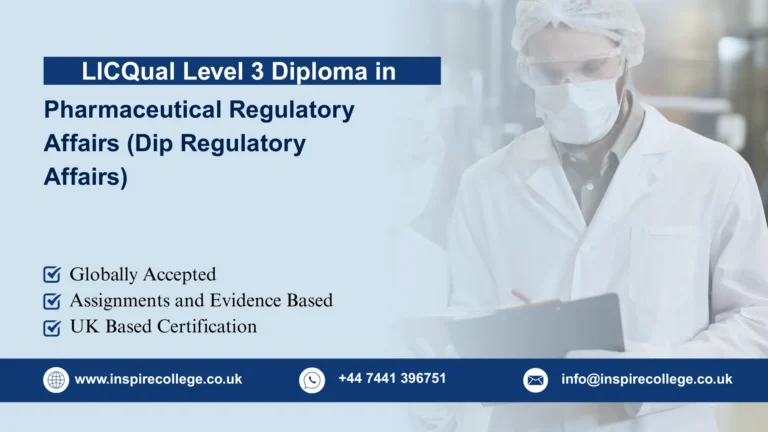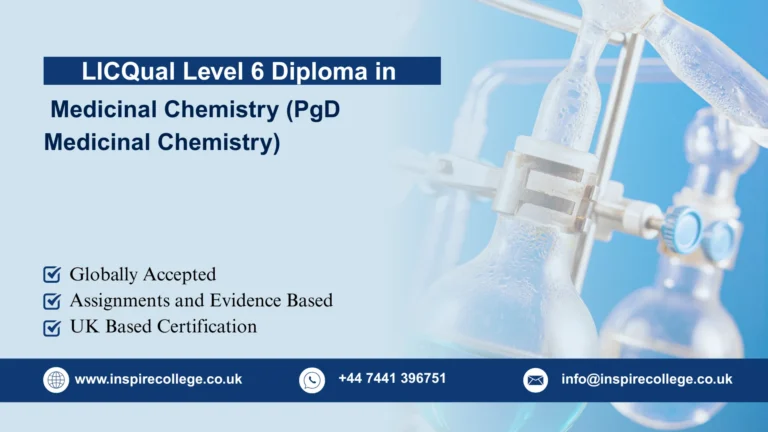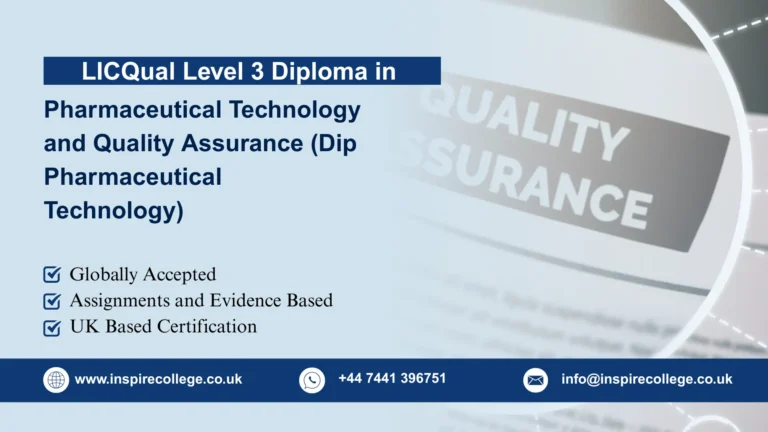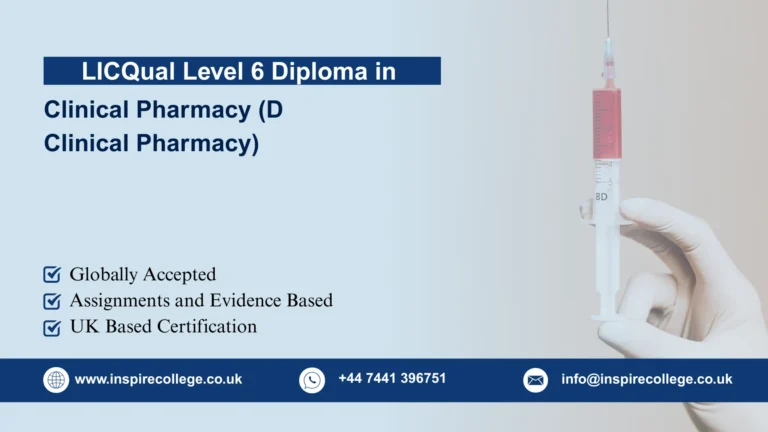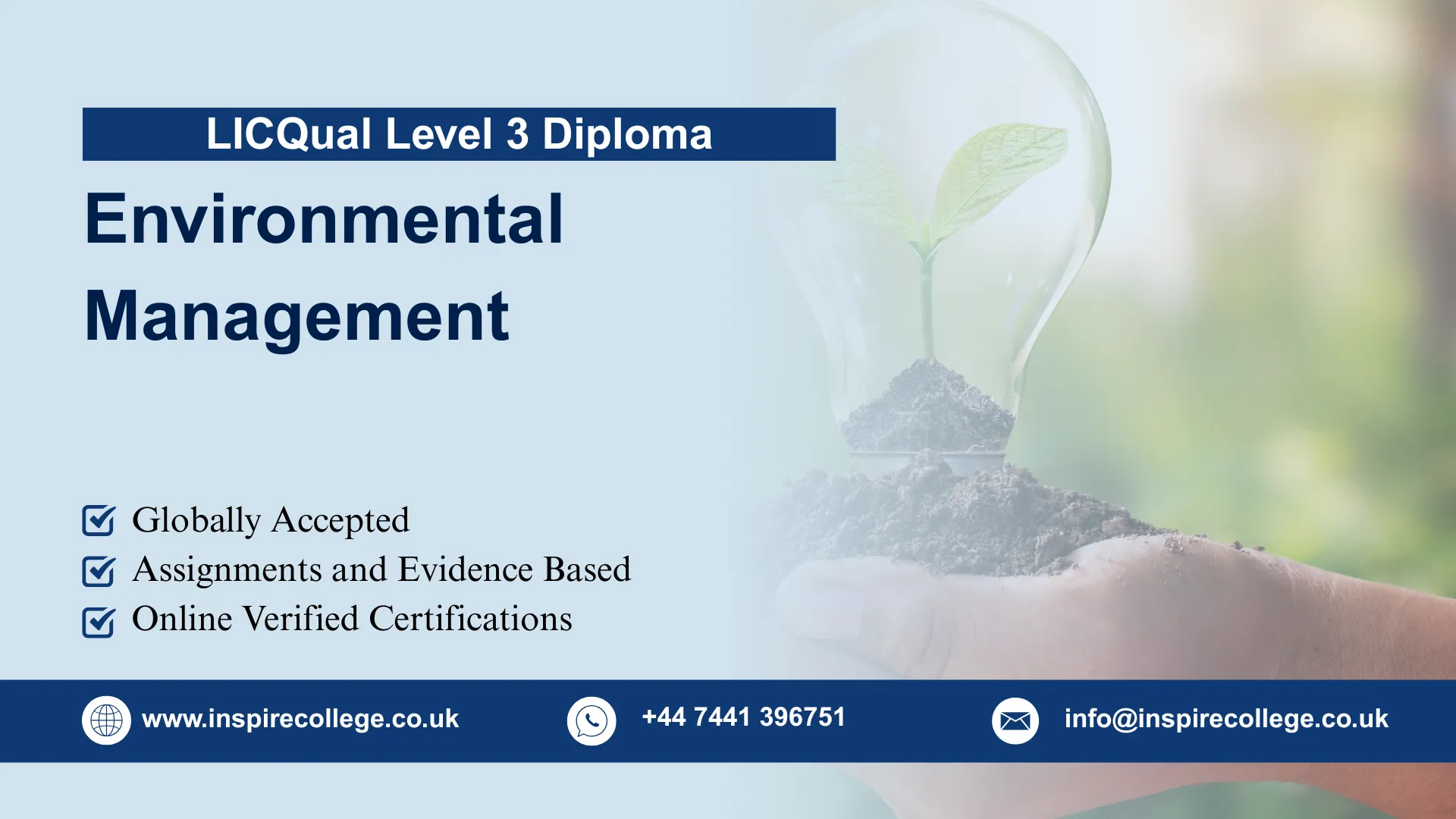
LICQual Level 3 Diploma in Environmental Management
The growing global emphasis on sustainability and responsible business practices has made environmental management a critical skill across industries. The LICQual Level 3 Diploma in Environmental Management is designed to equip learners with the knowledge, competencies, and practical strategies required to address environmental challenges while promoting sustainable development. This internationally recognized qualification provides a solid foundation for individuals aspiring to build or advance their careers in environmental management, compliance, and sustainability.
LICQual Level 3 Diploma in Environmental Management explores the principles of environmental legislation, resource efficiency, waste management, and sustainable practices. Learners will develop a deep understanding of environmental risks, the importance of corporate social responsibility, and the role of management systems in achieving compliance with international standards. By combining theoretical insights with real-world applications, the course empowers professionals to implement sustainable policies, reduce environmental impact, and enhance organizational performance.
Graduates of this program will gain valuable skills in environmental auditing, policy development, sustainable resource use, and risk management. LICQual Level 3 Diploma in Environmental Management prepares learners to contribute effectively in roles such as environmental officers, compliance managers, sustainability consultants, and health, safety, and environment (HSE) professionals.
Whether you are entering the environmental sector or seeking to enhance your existing expertise, the LICQual Level 3 Diploma in Environmental Management provides the essential knowledge and practical tools to succeed. With a strong focus on sustainability, compliance, and best practices, LICQual Level 3 Diploma in Environmental Management ensures learners are well-prepared to meet the growing demands of environmentally responsible industries worldwide.
To enroll in the LICQual Level 3 Diploma in Environmental Management, applicants are expected to meet the following criteria:
- Minimum Age Requirement
- Learners must be 16 years of age or older at the time of enrollment. This ensures that candidates have the maturity and foundational skills required to successfully engage with the academic and professional aspects of the qualification.
- Educational Background
- Applicants should ideally hold a minimum of GCSE qualifications (or equivalent) in Mathematics, English, and Science. These core subjects provide the essential foundation for understanding technical concepts, written assessments, and analytical tasks within the program.
- While not mandatory, having a prior academic background in subjects such as environmental science, geography, or sustainability studies is considered an advantage, as it supports a smoother transition into advanced environmental management topics.
- Work Experience (Optional but Beneficial)
- Previous experience in environmental management, sustainability practices, compliance, or related professional fields is not compulsory but can be highly beneficial. Candidates with relevant work exposure will find it easier to connect theoretical knowledge with practical workplace applications.
- English Language Proficiency
- Since the qualification is delivered in English, learners must demonstrate good proficiency in both written and spoken English to fully understand the course materials, participate in discussions, and complete assignments effectively.
- For applicants whose first language is not English, evidence of language competence may be required. A CEFR Level B2 (or equivalent) is recommended to ensure the learner can meet the academic demands of the course.
Mandatory Units
The LICQual Level 3 Diploma in Environmental Management, to achieve the qualification candidates must complete all the mandatory units form the following :
Mandatory Units
- Introduction to Environment
- Environmental Management Systems
- Environmental Planning
- Global Environmental Issues
- Modern Environmental Management
- Energy Management
Upon successful completion of the LICQual Level 3 Diploma in Environmental Management, participants will achieve the following learning outcomes:
Learning Outcomes
- Introduction to Environment
- Develop a strong understanding of the fundamental principles of environmental science, including ecosystems, biodiversity, and natural resource cycles.
- Analyze the role of human activities in shaping environmental changes, such as deforestation, urbanization, industrialization, and agricultural practices.
- Build a solid foundation in key environmental concepts, enabling learners to recognize the interconnectedness of ecological systems and the challenges of sustainable resource use.
- Environmental Management Systems (EMS)
- Gain in-depth knowledge of the structure, principles, and functions of Environmental Management Systems (EMS), with emphasis on internationally recognized frameworks like ISO 14001.
- Acquire practical skills to design, implement, and maintain EMS that help organizations achieve compliance, minimize risks, and demonstrate environmental responsibility.
- Learn how to monitor and evaluate EMS performance through audits, reviews, and continuous improvement strategies, ensuring organizations reduce their environmental footprint.
- Environmental Planning
- Understand the importance of environmental planning in project development and its role in promoting sustainability and regulatory compliance.
- Apply key tools such as environmental risk assessments, impact assessments, and mitigation strategies to ensure projects meet both environmental and business objectives.
- Explore resource management and conservation approaches that support long-term ecological balance and responsible land use planning.
- Global Environmental Issues
- Identify and critically assess major global environmental challenges, including climate change, pollution, biodiversity loss, desertification, and resource depletion.
- Examine international policies, agreements, and frameworks such as the Paris Agreement, Kyoto Protocol, and UN Sustainable Development Goals (SDGs).
- Evaluate how governments, organizations, and individuals can contribute to addressing these global challenges through sustainable practices and innovative solutions.
- Modern Environmental Management
- Explore contemporary trends and practices in environmental management, including Corporate Social Responsibility (CSR), environmental reporting, and sustainable supply chains.
- Understand how green technologies and innovations are reshaping industries and creating new opportunities for sustainable growth.
- Learn how organizations can integrate environmental management into business strategies, improving compliance, reputation, and overall sustainability performance.
- Energy Management
- Develop a comprehensive understanding of energy management principles, focusing on energy conservation, energy efficiency, and the role of renewable energy.
- Gain the ability to assess organizational energy usage, identify inefficiencies, and recommend practical solutions to reduce costs and environmental impacts.
- Understand the importance of energy audits, monitoring systems, and sustainable energy policies in supporting global transitions towards low-carbon economies.
This Diploma is Ideal For
Individuals Passionate about Environmental Sustainability
- People who are enthusiastic about protecting the environment and promoting sustainability and want to transform their passion into a meaningful career.
- Learners who wish to gain the knowledge and practical skills required to enter professional roles in environmental management, conservation, and sustainable development.
- Those aspiring to contribute to solving global environmental challenges such as climate change, pollution, deforestation, and biodiversity loss.
Professionals Working in Environmental or Sustainability Roles
- Individuals currently employed as environmental officers, sustainability practitioners, HSE specialists, or compliance professionals who want to strengthen their expertise with an accredited qualification.
- Learners looking to expand their knowledge of environmental legislation, management systems, and sustainability practices to increase their effectiveness in the workplace.
- Professionals aiming to advance their career prospects by demonstrating commitment to continuing professional development (CPD).
Aspiring Environmental Managers, Auditors, and Consultants
- Learners aiming to progress into leadership or specialist roles such as environmental auditors, compliance managers, or sustainability consultants.
- Those who want to build a comprehensive understanding of Environmental Management Systems (EMS), global environmental issues, and energy management strategies.
- Individuals planning to provide advisory, auditing, or consulting services to organizations seeking to improve environmental performance and compliance.
Learners with a Scientific or Technical Background
- Individuals with academic foundations in environmental science, geography, engineering, or related technical fields who wish to specialize further in environmental management.
- Learners who want to bridge academic knowledge with practical applications, managing environmental risks and developing sustainable solutions.
- Professionals in technical industries seeking to incorporate environmental strategies into organizational processes to meet regulatory requirements and sustainability goals.
Students and Recent Graduates
- Individuals who have recently completed studies and want to pursue a professional career in environmental management, sustainability, or resource management.
- Learners eager to develop the skills and confidence to contribute effectively to climate change mitigation, sustainable development projects, and biodiversity conservation.
- A strong option for those who want to stand out in the job market by holding an accredited and internationally recognized qualification.
Professionals in Industries with Environmental Impact
- Individuals working in industries such as waste management, renewable energy, construction, manufacturing, and corporate social responsibility (CSR) who want to help reduce their organization’s environmental footprint.
- Professionals responsible for implementing sustainability initiatives, ensuring compliance, or improving energy efficiency within their workplace.
- Learners motivated to support the adoption of green technologies, sustainable supply chains, and corporate environmental responsibility practices.
Register Now
LICQual Level 3 Diploma in Environmental Management

